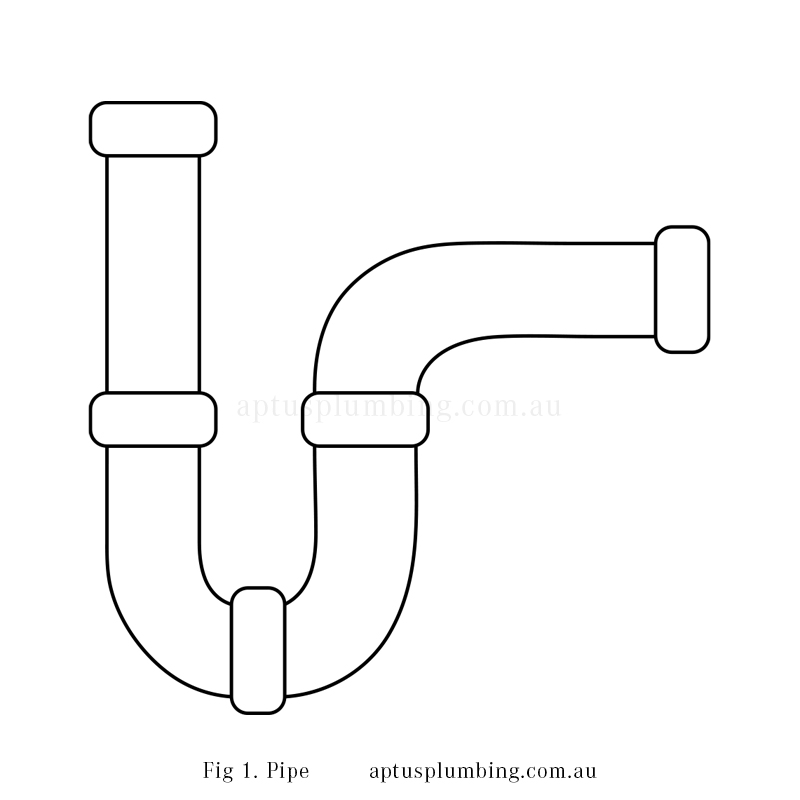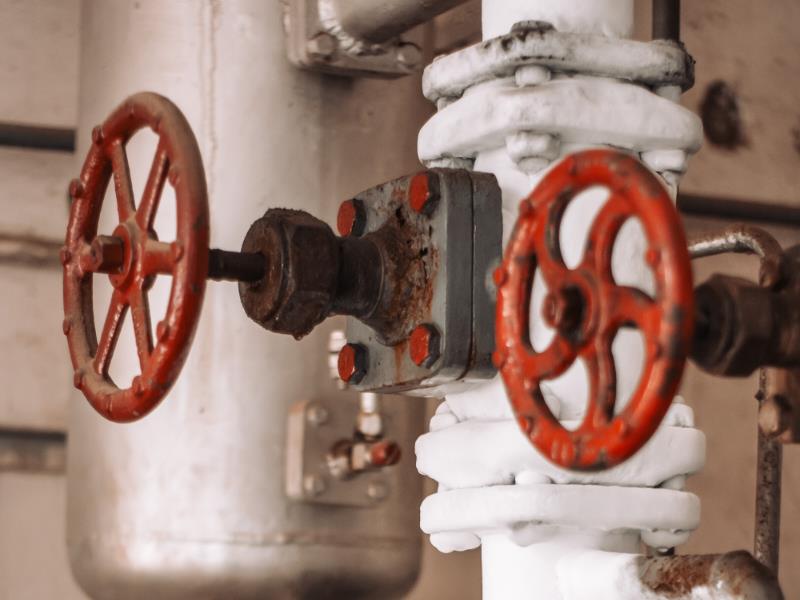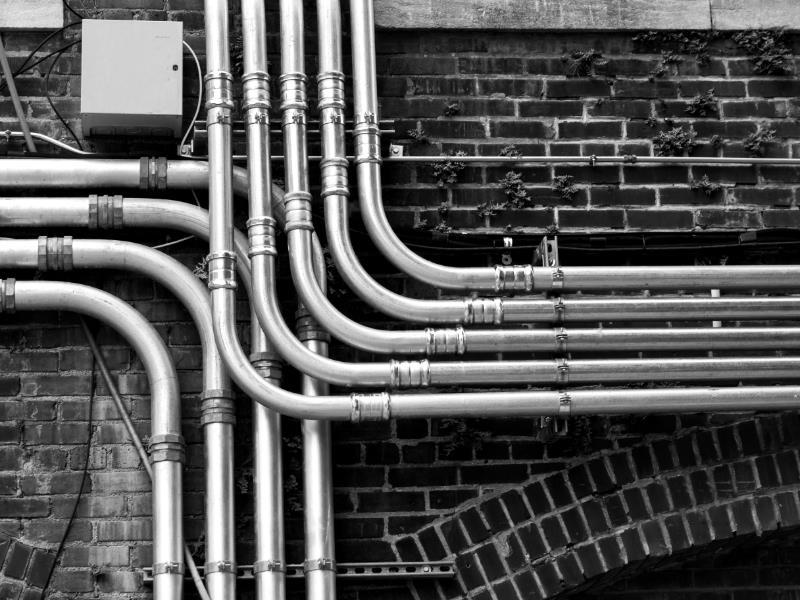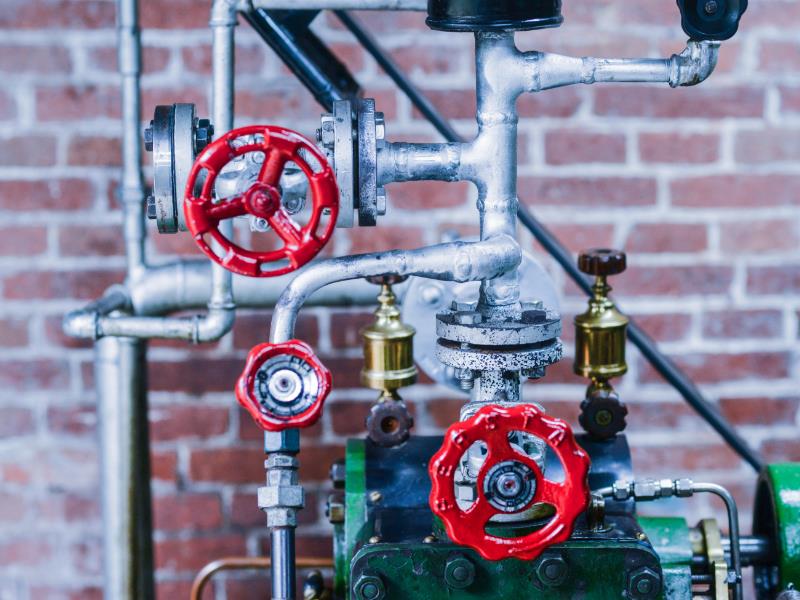Piping
Home / Wiki / PipingLast updated Tue 08 Mar 2022
Pipes are the backbone of plumbing. Pipes are used to move water and waste around plumbing systems, and without them, fluid would need to be moved manually via buckets, jars, or vases. Considering that, it may be no surprise to hear that pipes have been used by several civilisations for millennia, though their various iterations are all remarkably different.

Aptus Plumbing and Gas piping
Before Piping
Plumbing systems were in use before piping was created, though, for the most part, they required manual labour to operate. For instance, while the first water wells were built in the Neolithic era, humans needed to draw and transport the water by hand.
Despite that, though, there is evidence to show that early humanity understood, conceptually, that flowing water could be used to automate their plumbing systems. The settlement of Skara Brae, a Neolithic settlement in the Orkney archipelago of Scotland, used two-channel water systems to provide freshwater to and remove wastewater from homes.
The First Pipes
The Mesopotamians were the first to employ pipes in their plumbing systems, beginning around 4000 BCE. These pipes were made of clay, and they were used to capture rainwater and remove wastewater. The clay pipes were designed to be modular, with each segment being both detachable and replaceable, allowing for the plumbing systems to be easily cleaned without needing to impact functionality. By 2400 BCE, the Ancient Egyptians had also adopted similar practices, though they used copper, instead of clay, to make their pipes. By comparison, the Indus Valley Civilisation, despite the breadth and complexity of their advanced plumbing systems, used very little piping in their cities, instead opting for channels and manual labour.
As with many other aspects of plumbing, the Ancient Greeks revolutionised the use of piping to create advanced plumbing applications previously unimagined, including the first flush toilets. The Ancient Greeks commonly used clay for their pipes, though their successors, the Roman Empire, would go on to use commonly-available lead instead.

A white pipe with a large valve attached to it
Lead Pipes
The Roman Empire famously used lead piping for a good majority of their plumbing, and it is a common belief in the modern day that this extensive use of lead, especially in pipes responsible for delivering drinking water, must have unknowingly resulted in an increased incidence of lead poisoning within the Roman Empire. However, the Romans were perfectly aware of the concept of lead poisoning, and many Roman scientists, plumbers, and authors wrote of the dangers of using lead pipes for water due to the presence of 'white lead' (lead carbonate) in the produced water.
While many of the plumbers responsible for smelting and forming the lead pipes were likely poisoned by their work, it is an academically-contested position to assert that the use of the pipes did or didn't result in an increased incidence of lead poisoning within the general population of the Roman Empire specifically. Many of the pipes and aqueducts of Rome required routine maintenance to remove the build-up of calcium deposits along their length, which, at times, became so severe that respected plumbers would complain that the constricted diameter of the pipes would limit the amount of water the system could provide. While this decreased the average surface area of water that would be exposed to any lead piping or sheeting, one needs also to consider both that the water was constantly running, and that what water was exposed to lead was commonly used for the public baths. Homes and private residences still typically opted for clay piping, which leaves it unlikely that lead pipes would have led to any significant public health crisis in Rome.

A set of pipes against a wall
Modern Piping
Now that piping was commonly used in various civilisations around the world, it would not fall out of practice again. While some communities, such as those in Nepal, continued to opt for manually operated channels, others, such as Islamic cities, towns, and settlements would instead begin to push the technology, creating the first hydraulic systems. Pipes would pave the way for the basic mechanics of modern plumbing, as they allowed plumbers the ability to control water pressure and thus direct water however they would like, even vertically, to supply the homes of the expanding modern world with water.
Today, pipes are still made from a wide range of materials depending on the application, though lead is no longer used in any Western country. Cast iron pipes were once common, particularly during the early days of the United States of America, due to their low cost and ease of use, though they have since been outclassed by PVC pipes. Coppers pipes are still in use and can provide some benefits over PVC pipes, such as durability, and it is typically a choice made either by the plumber during construction, or the owner of the property.
Pipes are sealed together via a complex chain of valves and fittings, though the systems are as modular as those used by the Mesopotamians, if not more so. In the case of metal pipes, they can be soldered together, and while lead solder was still common as late as the 1980s, it is now banned in all plumbing systems across most Western countries, with tin-antimony alloy solder taking its place.

A complex set of pipes and valves.
Nick Miletic
01 Aug 2024
Verified
Our heater stopped working. Guy (forgot his name but he was from the Brendale area) came out was very friendly and concise. Explained all the possible issues. Changing the thermostat fixed the issue.
Info Central Auto Auctions
26 Jul 2024
Verified
Aptus Plumbing at Brendale are 1st Rate, I would not go anywhere else.
When our Hot Water System died in the middle of Winter they came out Straight away and installed a New System quickly and profes... more
Terry Wakeham
26 Jul 2024
Verified
They were the only firm that could help us out late on a Friday afternoon at a very reasonable price.
The tradesman and his apprentice were very helpful and actually did more than we had hoped for.... more

We happily service all areas of Brisbane. Get in touch today.
And enjoy peace of mind with a dedicated team on call 24/7
